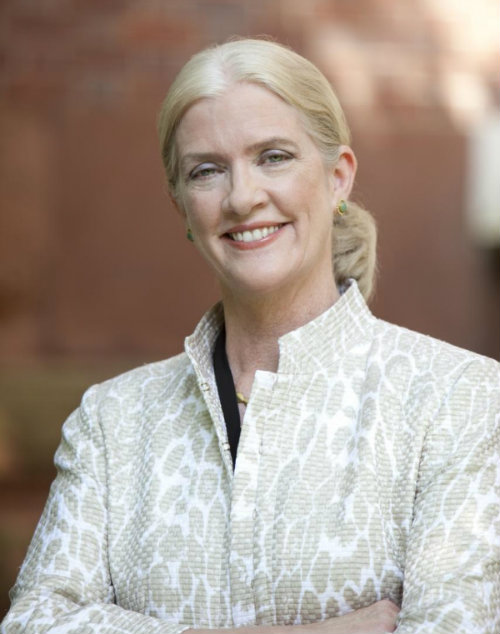Call of Duty: "Macbeth" Edition
Rebecca Bushnell’s new book looks at video games in light of Shakespeare, and vice-versa.
Macbeth comes into the hall with a bloody dagger.
Pause.
Restart.
Macbeth walks toward the three witches.
We think of the events in classic tragedies as inevitable: The characters always make the same decisions, and the outcome never changes. But what if you could stop and rewind the action? If you gave Macbeth a second chance, would he make a different choice?
Rebecca Bushnell, the School of Arts and Sciences Board of Overseers Professor of English, has spent much of her career studying tragedy, especially how its temporal structure affects our own experience of time. More recently she became interested in time-travel movies, where the characters try to correct history, and then in videogames, which often let the player just start over when things go wrong. Her new book, Tragic Time in Drama, Film and Videogames: The Future in the Instant, looks at the different ways these three forms treat time and how they can inform each other.
Bushnell, the editor of A Companion to Tragedy, says that since ancient Greece, tragedy has been a model for experiencing time that is focused on a crisis: Everything leads up to a moment of critical choice, and then everything changes after that. She’s written about how this way of thinking about time may have handicapped our ability to see things in the long view, as opposed to through a short, crisis-directed window.
She’s also challenged the idea of fate in tragedies. “A lot of people think that Greek tragedy and Shakespearean tragedy are all about the terrible workings of fate: you go into a play and you know exactly how it’s going to turn out, so the terror come from just watching the person walk into it,” she says. “But I don’t believe in fate.”
Bushnell started watching movies like Twelve Monkeys and Run Lola Run because they challenged the seeming inevitability of time and fate by exploring whether it is possible to go back and correct a crucial error. Then her daughter Ruth Toner, a physics Ph.D. and long-time gamer, sent her an NPR article which looked at videogames as tragedies, and Bushnell expanded her horizons again. She started playing complex narrative games like Heavy Rain, as well as Mass Effect, in which you’re asked to save the galaxy. She says, “Videogames are played in this very complex relationship to time in which you’re in the present and pressured to make decisions, but you can also rewind and pull it back.”
Characters make choices in tragedies, and Bushnell argues that whenever there is a decision, there is a chance that things can happen differently. She also believes that—despite all the discussion of Hamlet’s Oedipus complex—those choices do not necessarily come out of psychological character in the way that we think about it, but rather that characters become defined by the choices that they make. It’s a process that is built into some video games: “The choices that you make regarding dialogue or action influence in turn how your character evolves.”
Revisiting Hamlet, she realized how much the play is all about gaming and gamesmanship. “His character becomes weirdly unfixed because he doesn’t make his choices,” she says. “I contrast him with Macbeth, who is, again, interestingly unfixed and wavering until the moment that he commits the murder of Duncan. And then he just becomes a machine.”
Even dramatic tragedies have a new beginning each time they are performed—something different can always happen. Bushnell cites a famous 1969 experimental theater performance of Richard Schechner’s Dionysus in ‘69 where the audience intervened to rescue a character.
Today some theater has become outright interactive. “Experimental theater and videogames feed off each other in a really interesting sort of way,” says Bushnell. “I don’t think that most grown-ups realize how ubiquitous the gaming culture is. For a lot of young people, it has become their experience of story and narrative and theater.”
Bushnell teaches an Introduction to Tragedy class that starts with the Greeks and wraps up with film and games. For their final paper, the students have to pick something from popular culture and analyze it to find the deep structure of tragedy. “I feel like it’s a success when the students say, ‘Oh, yeah, now I see it’: that is, they can see in popular culture and the world around them tragic language and models as they have been transformed.”



